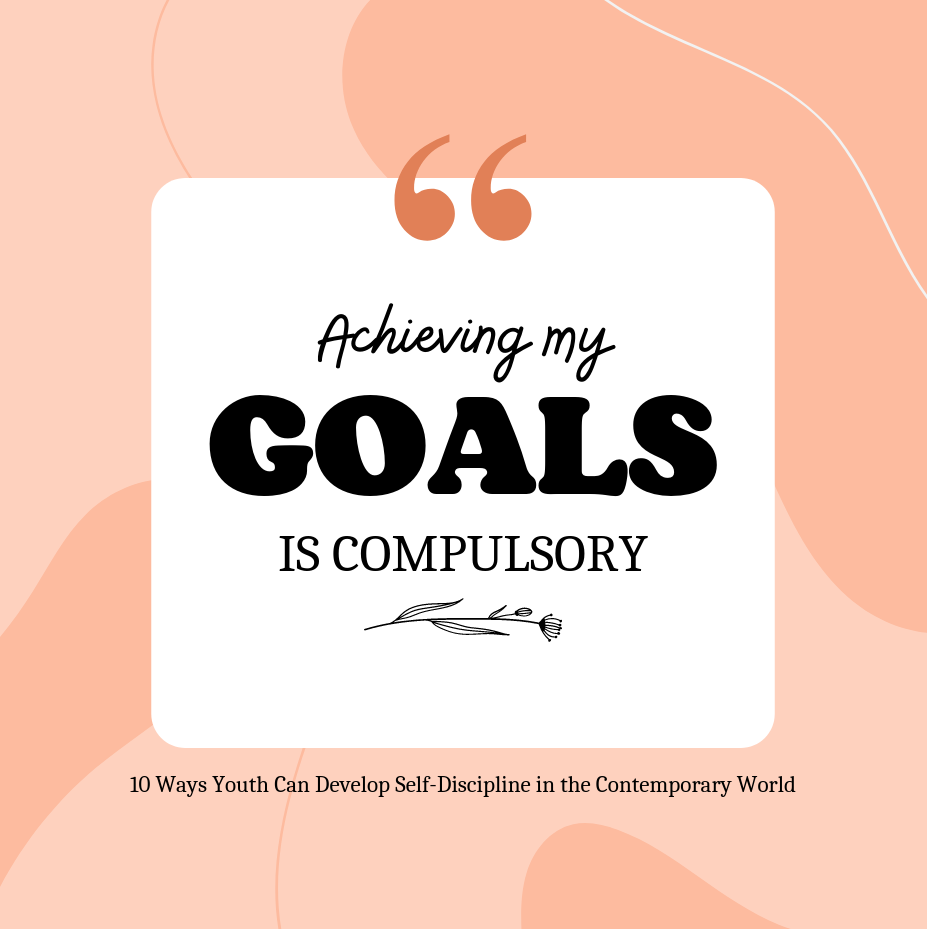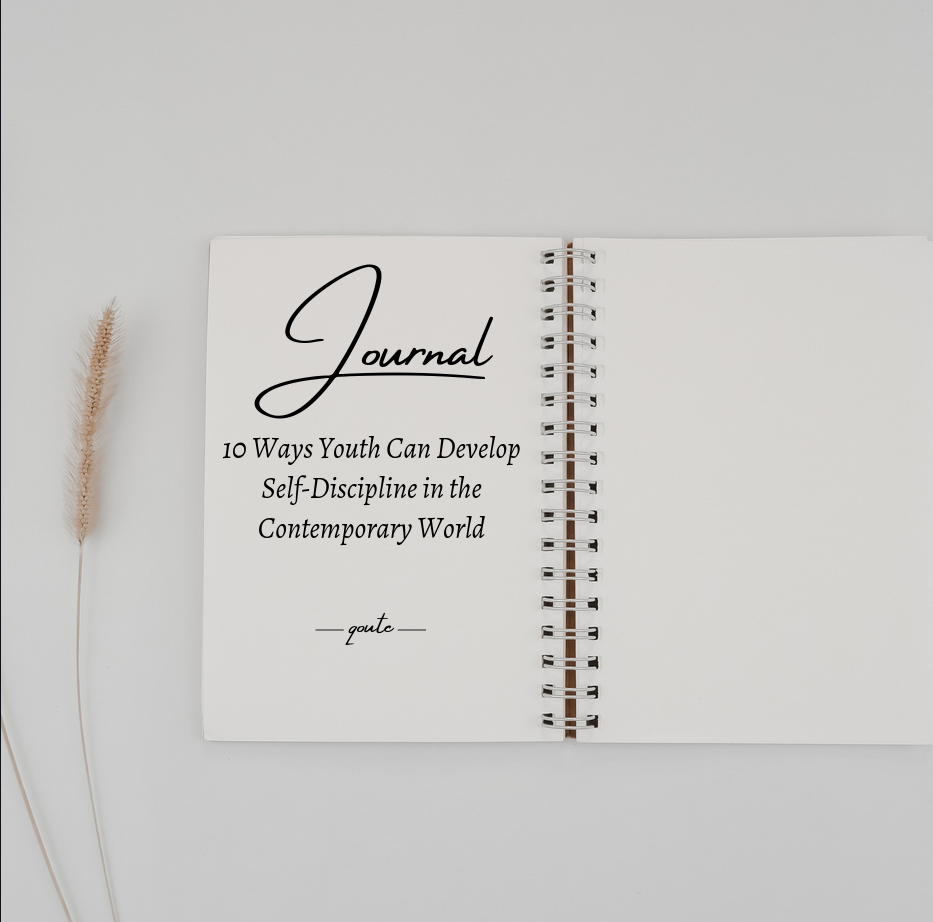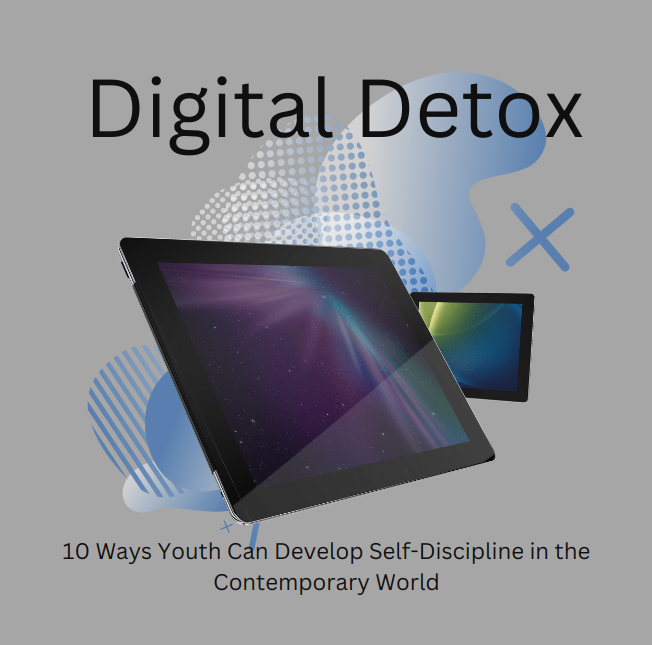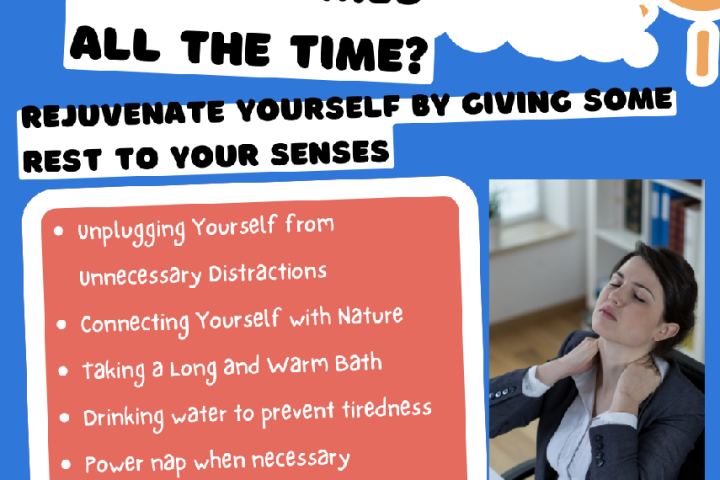The world in which we live today is as challenge-ridden as it is beautiful. The challenges that arise often come as a test of discipline, providing the opportunity to grow and further develop ourselves. Self-discipline appears to be more and more out of reach behind the obstacles that the contemporary world puts in our way.
As a child, or as a teenager, it’s becoming increasingly important to work towards developing the self-discipline to cultivate true joy in adulthood. Youth can build self-discipline on their own through a variety of different practices and simple additions to their lives. That being said, there’s a need to know where to even begin.
These 10 ways for youth to develop self-discipline are here to help youth, and adults, work on themselves. They can be a building block to work off of or a template from which an adult mentor can draw. Either way, they can help us all overcome these challenges to self-discipline in the contemporary world and help us to grow into better, happier people.
Define and Practice Self-Care
Self-care has become a popular term in the modern world, and it’s one that is often misunderstood. That’s why the first step towards developing self-discipline is building your own definition of self-care.

Taking care of yourself isn’t always about taking a break and forgetting about life for a moment. It’s also about doing the hard work that you know you need to do, but struggle to accept and act on.
Take time to explore the idea of self-care and what it may look like in action. This is a highly individualized practice, which is why it’s important to know what it means to you before acting with another’s definition.
Set Small Goals
The larger goal of developing self-discipline can be incredibly overwhelming. The contemporary world is flooded with images and messages about success, what it looks like, and how to get there. Comparing yourself to someone who the media has deemed to be successful is an easy thing to do, making it appear impossible to achieve.

Starting with small goals is the key to tackling such a massive idea. Even setting aside five minutes each day to start defining self-discipline and writing out goals is a fantastic place to start. Then breaking the larger goals into smaller, achievable tasks, will help to move forward.
Build Structure and Routine
Creating an environment for yourself to develop any new skill is one of the best ways to cultivate success. This environment needs to involve a set structure and routine. Numerous scientific studies discuss the benefits of routine in our everyday life, further pushing the need for it.
Routine helps diminish stress, improves sleep quality, allows for more physical activity, and makes creating new habits much easier. For the development of self-discipline, routine is both a major help in the process, as well as a practice in the skill itself.
Journaling
Start building your routine by setting aside time to journal every morning. This provides a stable space to set small goals, reflect on what self-care and self-discipline mean to you, and look forward to what you can do to continue growing.

A journal is a space that is just for you. There’s no need ever to share any of it out loud, show it to anyone, or write anything you don’t want to write. It’s merely a tool to make the process more tangible and less theoretical.
Start a Mindfulness Practice
Mindfulness is often seen as the cure-all practice. It makes sense, as our modern world is full of stimulants that pull the brain away from what’s there. Practicing mindfulness allows an individual to bring themselves back to what is happening, rather than floating off into a different realm of thoughts.

Practicing mindfulness can allow you to become aware of the feelings associated with self-discipline. For example, if you’re struggling to be disciplined with a particular task, being mindful about this can allow you to recognize that you are thinking about a recent breakup, a future work assignment, or simply struggling to stay focused.
The recognition of our obstacles is one of the best places to start in cultivating self-discipline. Mindfulness practice is the most helpful tool to begin that process.
Do a Digital Detox
Screens are everywhere today, you’re likely reading this on one. The average person spends around 7 hours per day looking at a screen, which is a dramatic percentage of our lives.

Not only do screens have physical health ramifications, but they can also destroy the way we view ourselves. Social media provides a steady stream to compare ourselves to, which can quickly lead to self-doubt.
A short digital detox, where screen time is limited or completely cut out, can have tremendous benefits in cultivating self-discipline for youth. It allows them to finally have space to reflect, rather than compare.
Take on a New Job
A steady and purposeful career is one of the reasons many people want to develop self-discipline in the first place. When starting out in the working world, it’s easy to grab the first job at a smoothie place down the road, but it can be difficult to find motivation there.

Taking on a job that is inspiring can be a crucial first step towards self-discipline. Yes, it makes it easier to get out of the house and go to work. It also provides a lifestyle in which one can work on themselves more, rather than sit and dread going to a job they don’t like.
Exploring New Hobbies
Developing a new hobby is another way that makes self-discipline appear more achievable. A new sport, craft, or group will carve out more time to have where you are pursuing passions. Self-discipline will show itself as an easier-to-reach goal, simply because you want to be doing the task at hand.

Within these hobbies, you can create new challenges, set small goals, be mindful, and practice self-discipline in a more controlled environment. Remember, we don’t build storm walls during the flood. Developing self-discipline in an enjoyable, easy environment will prepare you for the moments that are full of distractions and other barriers.
Physical Exercise
Establishing a routine of exercising will be one of the more difficult ways to achieve self-discipline for many, but can be one of the most important. This is another arena in which you can set incremental goals to achieve and make them seem more realistic to help slowly build self-discipline.

It’s not even about running ten miles a day or bench pressing your personal record. Just getting to the exercise and starting it helps to deepen the pathways in our minds toward self-discipline so they are easier to follow in the future.
Ask for Help
Finally, don’t be afraid to ask for help. Accountability is a useful tool that can be used to start the process of cultivating self-discipline. A mentor can help to guide you along the winding, and often confusing, the path towards a disciplined mind and body.

Remember, it’s easy to feel alone in a world that’s so busy and filled with people doing their own thing. Every one of us is on our own journey forward, and those who have walked before us are there to help bring us along beside them.




